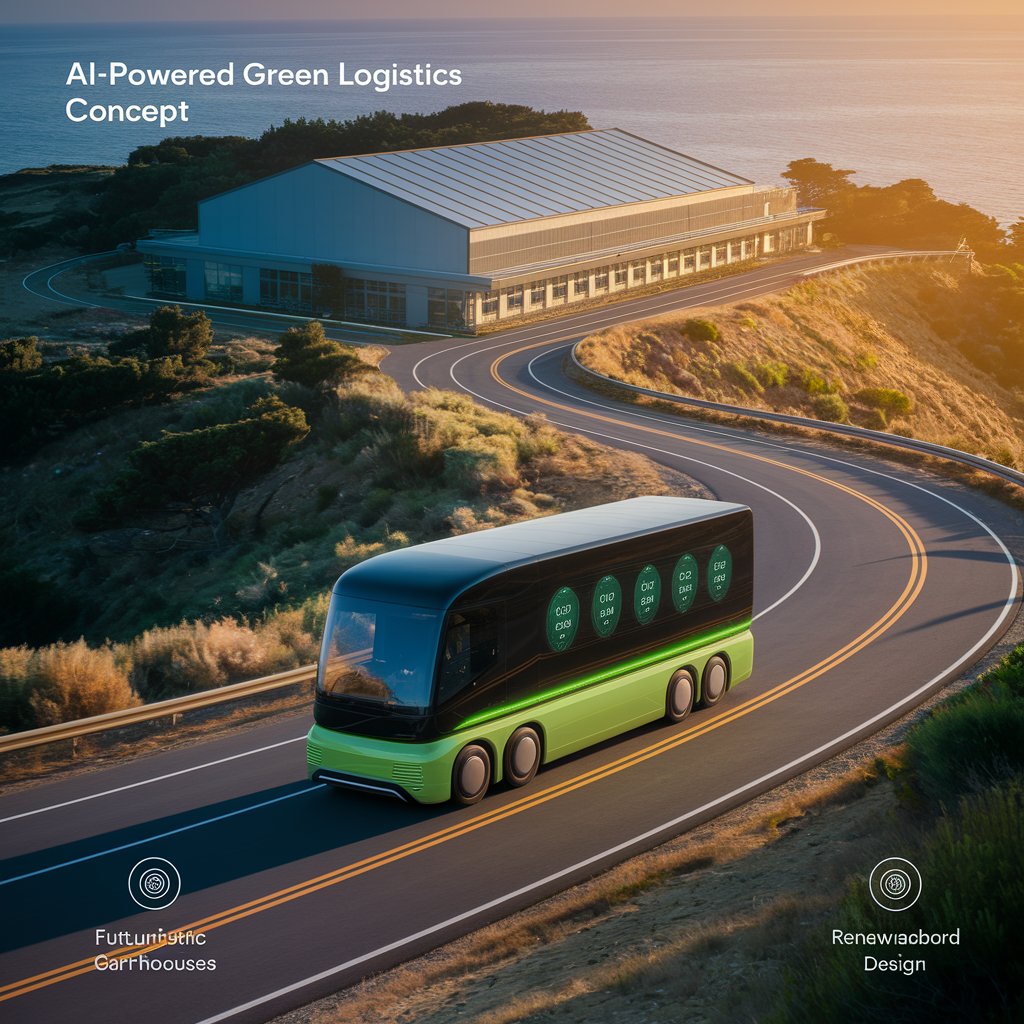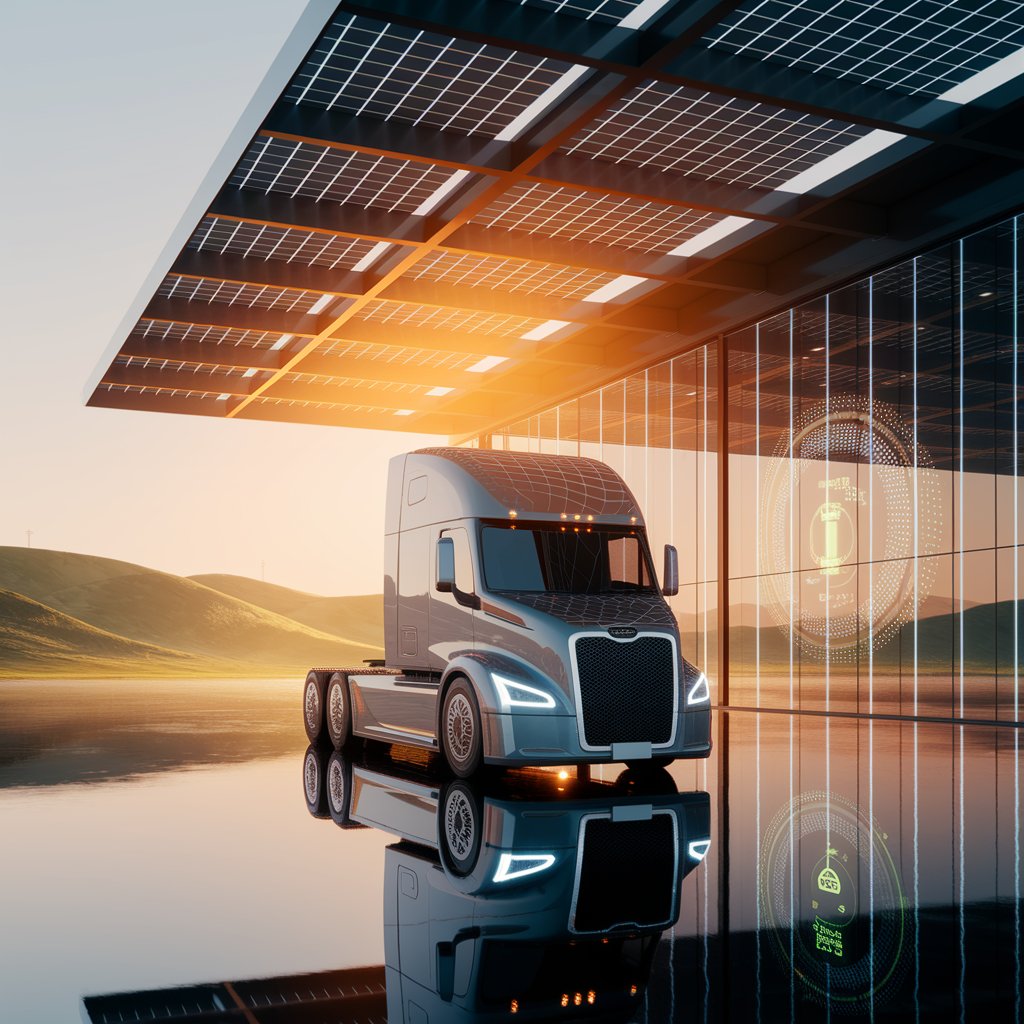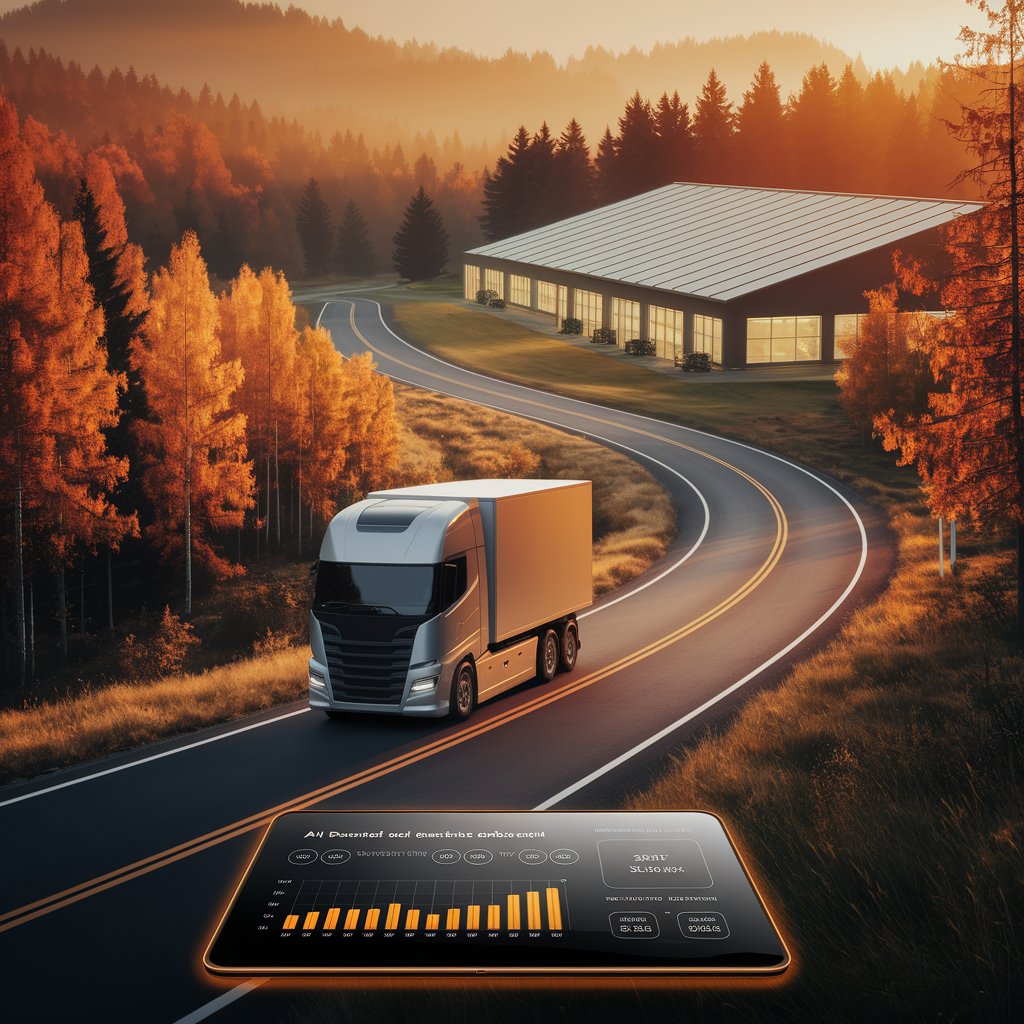Green Logistics AI: Driving Sustainable Supply Chains with Technology

Introduction
Green logistics AI is the solution. By combining artificial intelligence with sustainable supply chain strategies, companies can reduce waste, optimize routes, cut emissions, and move closer to their environmental goals—all while maintaining profitability and service reliability.
What Is Green Logistics AI?
Green logistics AI refers to the integration of artificial intelligence into supply chain operations with the purpose of making them more sustainable. It focuses on:
- Route optimization to minimize fuel usage
- Smart demand forecasting to reduce overproduction and excess shipments
- Energy-efficient warehouse management
- Carbon tracking tools for emissions transparency
- Eco-focused automation that aligns logistics with global sustainability standards

Key Benefits of Green Logistics AI
Benefit | Impact |
Reduced Emissions | Lower carbon footprint through efficient routing |
Cost Savings | Less fuel and energy consumption |
Smarter Inventory | AI prevents overstock and waste |
Customer Trust | Meet sustainability expectations from clients |
Regulatory Compliance | Align with environmental laws and standards |
How It Works in Supply Chains
- Data Collection: AI gathers fuel consumption, route history, and shipment data.
- Optimization Engine: Algorithms identify greener transportation routes and modes.
- Automation: Systems adjust warehouse energy usage and packaging efficiency.
- Carbon Tracking: Real-time dashboards measure emissions per shipment.
- Predictive Planning: AI forecasts demand to prevent unnecessary shipments.

Advanced Applications
- Electric Vehicle Fleet Optimization: AI determines the best routes for EV trucks.
- Sustainable Packaging Automation: AI helps reduce material waste.
- AI-Powered Supplier Scoring: Evaluate partners based on sustainability performance.
- Circular Logistics Models: Support recycling and reverse logistics initiatives.
Why Sustainability Needs AI
While sustainability goals can be set manually, achieving them at scale requires constant monitoring and fast decision-making. AI enables logistics companies to automate eco-friendly practices, reduce inefficiencies, and stay competitive in a world where customers demand green operations.

Conclusion
Green logistics AI is no longer optional—it’s a strategic necessity. By combining advanced automation with sustainable practices, logistics companies can achieve lower costs, improved efficiency, and a significant reduction in emissions. Investing in green logistics AI today ensures a cleaner, smarter, and more competitive future for global supply chains.
